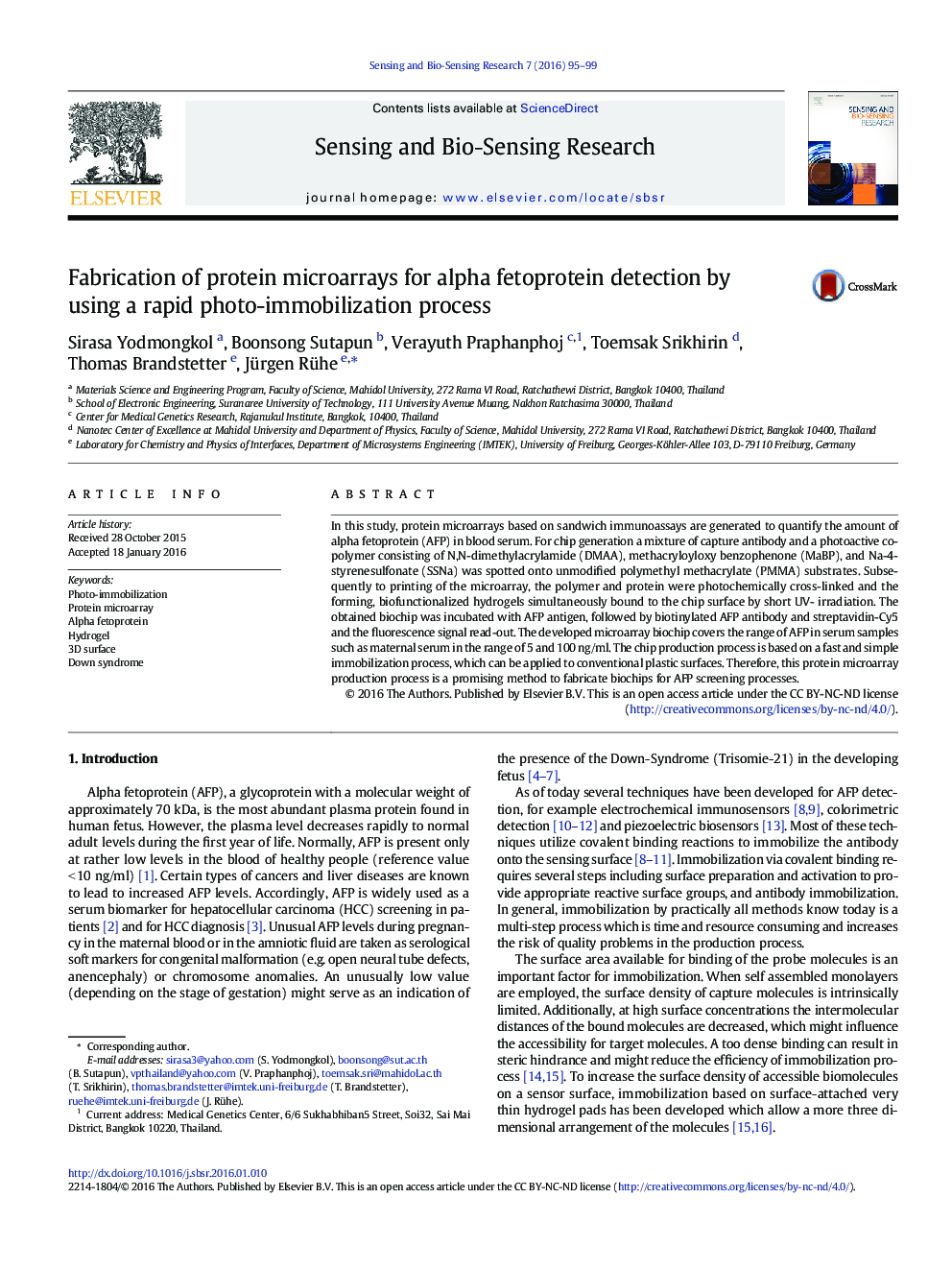| Article ID | Journal | Published Year | Pages | File Type |
|---|---|---|---|---|
| 807370 | Sensing and Bio-Sensing Research | 2016 | 5 Pages |
•A simple one step for the fabrication of a biochip for AFP detection is demonstrated.•The developed process allows the rapid photo-immobilization of AFP antibodies with high biofunctionality into a hydrogel based microarray.•The detection range of the biochip covers the whole clinically relevant range of AFP concentrations in maternal blood.
In this study, protein microarrays based on sandwich immunoassays are generated to quantify the amount of alpha fetoprotein (AFP) in blood serum. For chip generation a mixture of capture antibody and a photoactive copolymer consisting of N,N-dimethylacrylamide (DMAA), methacryloyloxy benzophenone (MaBP), and Na-4-styrenesulfonate (SSNa) was spotted onto unmodified polymethyl methacrylate (PMMA) substrates. Subsequently to printing of the microarray, the polymer and protein were photochemically cross-linked and the forming, biofunctionalized hydrogels simultaneously bound to the chip surface by short UV- irradiation. The obtained biochip was incubated with AFP antigen, followed by biotinylated AFP antibody and streptavidin-Cy5 and the fluorescence signal read-out. The developed microarray biochip covers the range of AFP in serum samples such as maternal serum in the range of 5 and 100 ng/ml. The chip production process is based on a fast and simple immobilization process, which can be applied to conventional plastic surfaces. Therefore, this protein microarray production process is a promising method to fabricate biochips for AFP screening processes.
Graphical abstractFigure optionsDownload full-size imageDownload as PowerPoint slide
